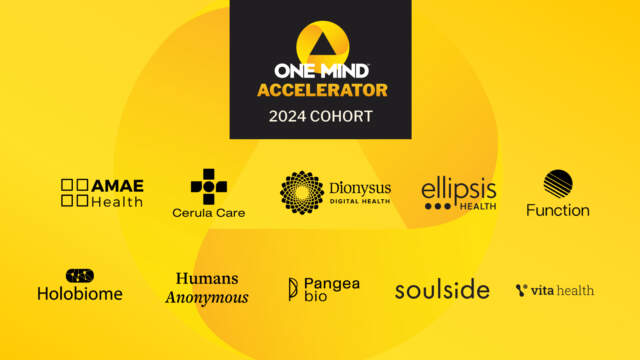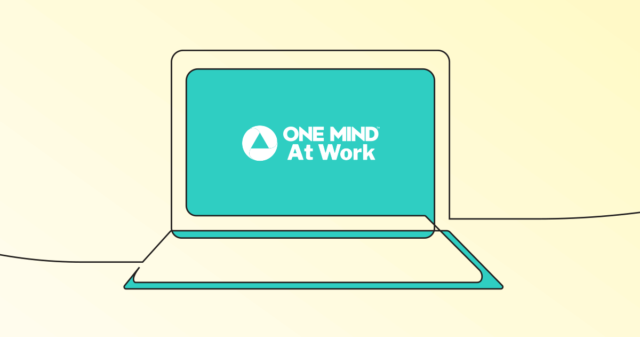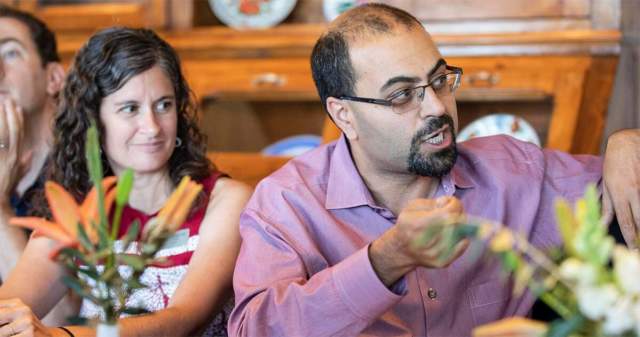What if healing some of the cognitive deficits inherent in schizophrenia could be achieved through mental exercises? Thanks to a property of the brain called neuroplasticity, schizophrenia patients working with Dr. Sophia Vinogradov, M.D., can improve their cognitive skills through a progressive series of computer-based game-like exercises. I participated in an One Mind-funded pilot study in Dr. Vinogradov’s lab which helped me improve my verbal fluency and social comfort.
Comments are now closed. Many thanks to everyone for their questions and comments, and thank you to Dr. Vinogradov for the great answers she was able to give.
-Brandon
Here is Dr. Vinogradov’s first response to an anonymous Brain Waves visitor:
Participating in Cognitive Training
Hi, Thanks for your comments. Here is some information on our approach and how to consider it for your loved one: 1. We have done a preliminary set of studies demonstrating that a specific form of computerized cognitive training improved certain specific aspects of cognition in adults with schizophrenia. This software was developed by a company called Positscience Inc. Although the complete version of the software we have used is not available to the public, you could potentially try the brain training exercises called Brain Fitness Program, which are currently available for older adults, developed by Positscience Inc, and which are very similar to what we used in our studies. You will want to use the Brain Fitness Program, auditory exercises (not the visual exercises, at least not initially). A browser-based version of these exercises should be available very shortly. 2. This cognitive training is not a magic bullet. It is hard work and requires a commitment to do the training ideally for one hour a day, 5 days a week, in order to see benefits. The person who is doing the training must absolutely be motivated to do it, and it is best if a motivated family member or friend is behind them and giving them support. Most people quit after the first week or two. It is like physical fitness training. It is only helpful if you do the exercises regularly, at least 4-5 hours a week, one hour on each day of training. Like going to the gym, it can get pretty tedious, but for the best results, you have to keep at it for at least 10 weeks. And like going to the gym, you don’t see miraculous changes right away. You start to see slow and gradual improvements that can start after a few months. 3. We have found that certain factors reduce a person’s ability to respond to the training. These include a low IQ, lack of motivation, substance abuse (especially alcohol and marijuana), and high doses of medications that have anticholinergic side effects. We also find that even when a person begins to experience better cognition (better attention, learning, and memory functions), there can often be no change in their clinical symptoms (hallucinations, delusions). 4. While our research has shown that this kind of training helps to strengthen “weak” areas of the brain in terms of information processing, it is important to remember that it is not a miracle cure. It is one additional form of treatment which we believe can be of significant benefit to individuals with schizophrenia and related illnesses, but it must be combined with other forms of treatment. I strongly recommend that cognitive training be combined with enrollment in a Supported Education or Supported Employment program. I also strongly recommend that individuals with schizophrenia work with a therapist and do “Cognitive Behavioral Therapy for Psychosis” to learn lifelong stress management and personalized coping skills for dealing with their challenging symptoms. 5. I further recommend that you visit the website www.schizophrenia.com. It is very well run and has a lot of useful up-to-date information and resources. There are forums for individuals with schizophrenia and their family members, and people exchange ideas and support. It is really important to combat the social isolation that often accompanies schizophrenia. Another good resource is schizofriend.me, a social networking site for people with schizophrenia. 6. Research is currently underway with a new company, called Brain Plasticity Institute, to develop a much more sophisticated (and entertaining) browser-based cognitive training program that will be aimed specifically at the needs of people with schizophrenia. A randomized controlled trial of this program will take place next year, with the aim of seeking FDA approval for this form of treatment. Hopefully, after that point, this form of treatment will become widely available through practitioners around the country. We see this as a rapidly emerging new area of treatment development. If you are interested in the science behind this, take a look at the website www.escons.org. We are beginning to bring together research scientists and members of the entertainment software industry to find creative new ways to support this work. 7. If someone is interested in getting involved in our current ongoing research of cognitive training, they must reside in the San Francisco Bay Area and be willing to participate very intensively with us for a 6-8 month period. This includes brain scans, interviews and testing sessions, the computerized cognitive training, and so forth. We do pay people a nominal amount for study participation.







